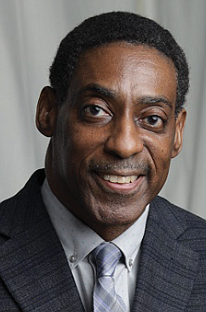America no longer the ‘land of opportunity’, by David W. Marshall
12/14/2023, 6 p.m.
When the governors of Texas, Arizona and Florida took advantage of the welcoming traditions provided by sanctuary cities, it was meant to get rid of an unwanted problem. More than 23,000 asylum seekers have been bused to Chicago from Texas since the beginning of the year. As the cold weather sets in, people in the nation’s third largest city are sheltering on sidewalks, at police station foyers and at the city’s airport.
A sanctuary city is a community with a policy that discourages local law enforcement from reporting the immigration status of individuals unless it involves investigation of a serious crime.
Chicago has been considered a sanctuary city since 1985 when then-Mayor Harold Washington issued an order prohibiting local officials from withholding city services, and investigating or prosecuting people solely based on their immigration status.
The Welcoming City Ordinance banned police officers from arresting anyone just because they were suspected of being undocumented.
Now, several Chicago alderpersons are having a change of heart. They are calling for the sanctuary status to be reconsidered in response to the number of migrants who recently arrived to the city. The heated debate over the issue has divided the City Council where some members are seeking to put Chicago’s sanctuary city status up for a referendum vote next year.
“When Harold Washington did this, times were different. We didn’t have people coming into this city by the thousands,” one alderman said during a contentious council meeting.
While the debate in Chicago highlights the frustration of overwhelmed city officials, the sanctuary rules were intended to apply to undocumented residents rather than the wave of new arrivals seeking asylum.
If the referendum were to be approved by voters, the state’s Trust Act signed by Gov. Bruce Rauner would still prohibit the Chicago Police Department from cooperating with immigration authorities.
Chicago is not alone in struggling to cope with the influx of asylum seekers. Other Democratic-led cities including Denver, Houston, Los Angles and New York have received more than 120,000 asylum seekers. The mayors of those cities have formed a coalition, led by Denver Mayor Mike Johnston, to press President Biden for more federal aid as their resources dwindle and migrants arrive in their cities with little coordination.
In New York where a cruise ship terminal was turned into a shelter, Mayor Eric Adams has called the city’s migrant influx a crisis, warning that shelters are so full that migrants will soon be forced onto the streets despite the cold weather.
President Biden has requested $1.4 billion from Congress to help state and local governments provide shelter and services for migrants. Denver’s Mayor Johnston and the other mayors say in a joint letter that $5 billion is needed. “While we are greatly appreciative of the additional federal funding proposed, our city budgets and local taxpayers continue to bear the brunt of this ongoing federal crisis,” the letter says. Denver is spending $2 million a week on sheltering migrants.
New York has surpassed a total of $1.7 billion and Chicago has spent $320 million, according to the letter. “Our cities need additional resources that far exceed the amount proposed in order to properly care for the asylum seekers entering our communities,” the mayors’ letter says. “Relying on municipal budgets is not sustainable and has forced us to cut essential city services.”
The mayors also want an accelerated work authorization approval process so migrants can find work. The humanitarian crisis is proving that America as a nation can no longer be seen as the “land of opportunity” for asylum seekers who have no reliable family support or sponsors in the U.S. already in place to help them transition.
As cities are already overburdened with the issues of homelessness and the lack of affordable housing, can they realistically take on the extra burden of migrants and continue essential services for the long- term future? This is an issue which is not going away in the foreseeable future.
The writer is the founder of the faith-based organization, TRB: The Reconciled Body, and author of the book “God Bless Our Divided America.”







